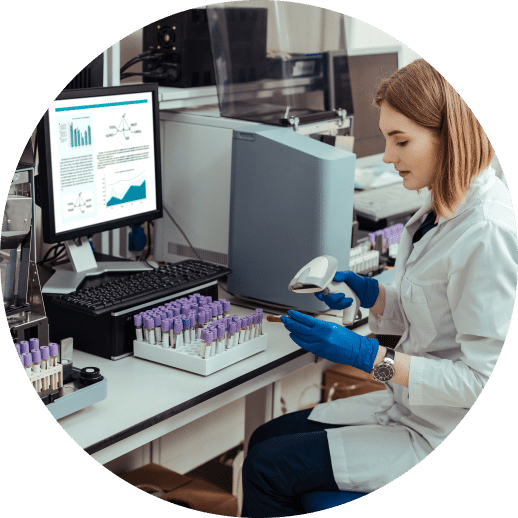Sending a sample
Information on sending genetic test samples.

NHS number is a requirement when referring NHS patients to us. Please indicate this on the request form.
Samples sent by Royal Mail or courier must comply with PI 650 for category B substances.
- This is a triple layer system that comprises a primary leak-proof receptacle within a secondary leak-proof receptacle contained in a rigid outer package. The packaging should be strong enough to withstand a 95 kPA pressure differential and a drop of 1.2 m
- There should be sufficient absorbent material between the primary and secondary packaging to absorb any spillage. The primary container and absorbent material must be placed into a single bag with the request form in the pouch
- The package should be clearly labelled ‘diagnostic specimen UN3373’
Sample handling:
Samples can be shipped at room temperature. Samples may be stored at room temperature if taken on the day they are to be sent or refrigerated overnight.
Samples in Streck Tubes for Non-Invasive Prenatal Diagnosis/Testing must be stored at room temperature and NOT refrigerated.
Sending samples for Cytogenetic Testing
Sending samples for Prenatal Cytogenetic Testing
Consent
For all genetic tests, it is the responsibility of the referring clinician to ensure that patient consent is obtained before sending the sample to the Laboratory for testing. The Record of Discussion form for non-Whole Genome Sequencing results is below. The referring clinician should keep a copy of the signed form on the patient record (do not send this Record of Discussion form to the laboratory). If the appointment is conducted remotely, the Record of Discussion form can be completed virtually; tick the appropriate box at the end of the form to indicate remote consent.
Protection of personal information
The laboratory has a procedure for the management of data and protection of personal information that is controlled and maintained by the Pathology System Manager and the Data Manager.
These procedures cover:
- Security – data is accessible only to authorised users via a valid and current password.
- Access to functions and facilities to individual users is restricted to ensure no user has inappropriately high access levels.
- Confidentiality and data protection – the security and access features ensure confidentiality is maintained to authorised and appropriate parties.
- All staff within the laboratory complete mandatory information governance training and are aware of the requirements to maintain confidentiality and the restrictions imposed by the laboratory with regard to information dissemination.
The Trust Data Protection Officer and ICT Department advise the laboratory regarding requirements to comply with current and future legislation for Data Protection.